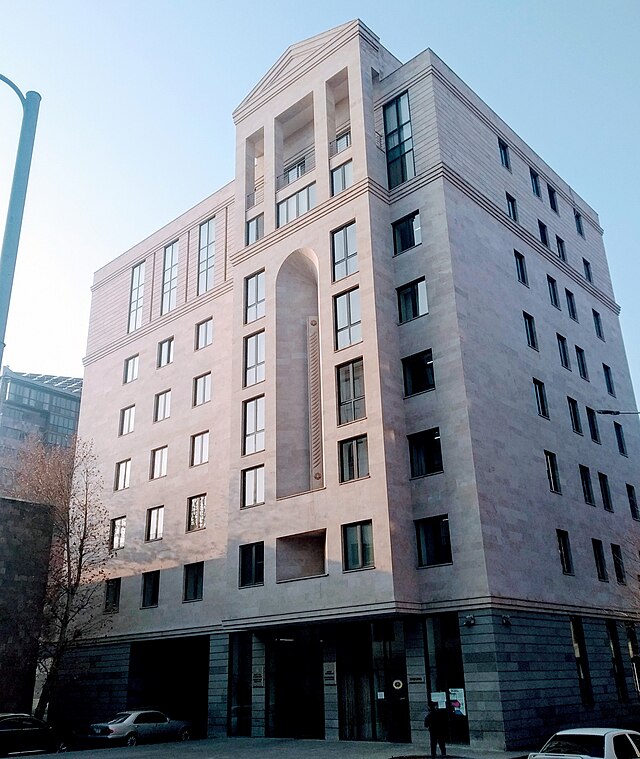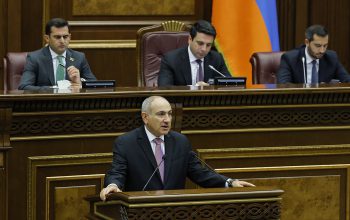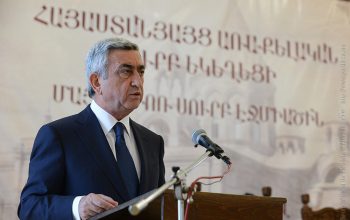In the shadow of looming elections, Armenia’s Ministry of Justice has quietly unveiled a bill that would compel online media to delete content labeled as slanderous by the authorities. The proposal, still in draft form, hasn’t yet reached parliament—but its message is already loud and clear.
Two days before the bill was circulated, Arayik Harutiunyan, Prime Minister Nikol Pashinyan’s chief of staff, took to social media with a warning. Media outlets, he said, must “self-regulate” or prepare for state intervention—intervention he admitted would be seen as a “restriction on freedom of speech.”
The amendments target both the Civil Code and existing media law. The justification—protection of citizens’ “private and family life, honor and reputation”—leans on the language of dignity, but the timing and context suggest a different motive. With parliamentary elections less than a year away, the government appears to be laying the groundwork for a more sanitized public sphere, one where criticism of those in power is just another form of defamation.
Journalists who don’t toe the line see the writing on the wall. Aram Abrahamyan, editor of the long-running independent daily Aravot, dismisses the bill’s stated goals. “They treat every negative evaluation as an insult,” he said. “That’s the problem.”
He points to how even a mundane observation—say, a lawmaker losing their temper—can be weaponized under vague standards. “The boundaries of insult are blurry. Any criticism might be labeled defamatory, and suddenly you’re being told to delete an article,” he added.
The law would even apply to user comments, dragging readers into the dragnet. Courts in Armenia already have the power to impose fines for defamation and demand retractions. What they cannot do—at least not yet—is order entire articles removed from the internet. This legislation would change that.
Grisha Balasanyan of Hetq, an investigative outlet, points to the larger political stakes. “We don’t have trustworthy courts,” he said. “There’s no reason to believe they won’t make politically motivated decisions.”
For him, the connection to the 2026 elections is obvious. The ruling party wants to curtail media scrutiny while it still can.
Harutiunyan’s May 2nd post, issued on the eve of World Press Freedom Day, did little to dispel that view. Without naming names, he accused the media of provoking hatred under the guise of free speech, and suggested that if they failed to reform, the public would demand state crackdowns. The idea that “the people” might ask for censorship is a familiar deflection—power speaking in the name of an imagined, aggrieved majority.
For Armine Ohanyan, founder of the opposition-leaning Hraparak, the signal is unambiguous. “This is about bullying outlets that challenge the government or report on its corruption,” she said. “Freedom of speech is one of the few things we’ve actually won in this country. We’re not going to let people like Arayik Harutiunyan crush it.”
Abrahamyan agrees. Having steered Aravot through three decades and multiple regimes, he says Pashinyan’s government is proving more intolerant of dissent than its predecessors. The irony is that Pashinyan himself was once a journalist and editor, regularly accused by the old elite of spreading misinformation and inciting unrest. He came to power in 2018 claiming to be a champion of press freedom. That promise has withered.
In 2021, his administration tripled fines for slander and criminalized “serious insults” directed at officials—only to decriminalize defamation a year later under international pressure. Still, the overall trajectory is hard to miss: a shrinking space for criticism, a growing appetite for control, and a ruling class increasingly unable to distinguish between accountability and attack.




